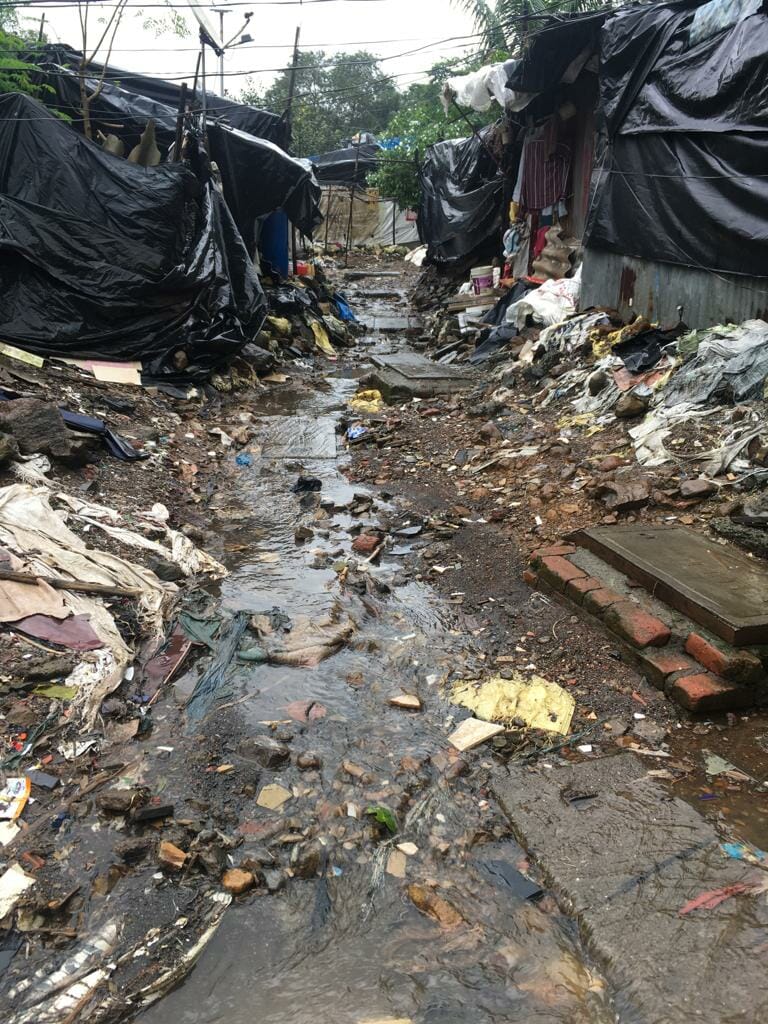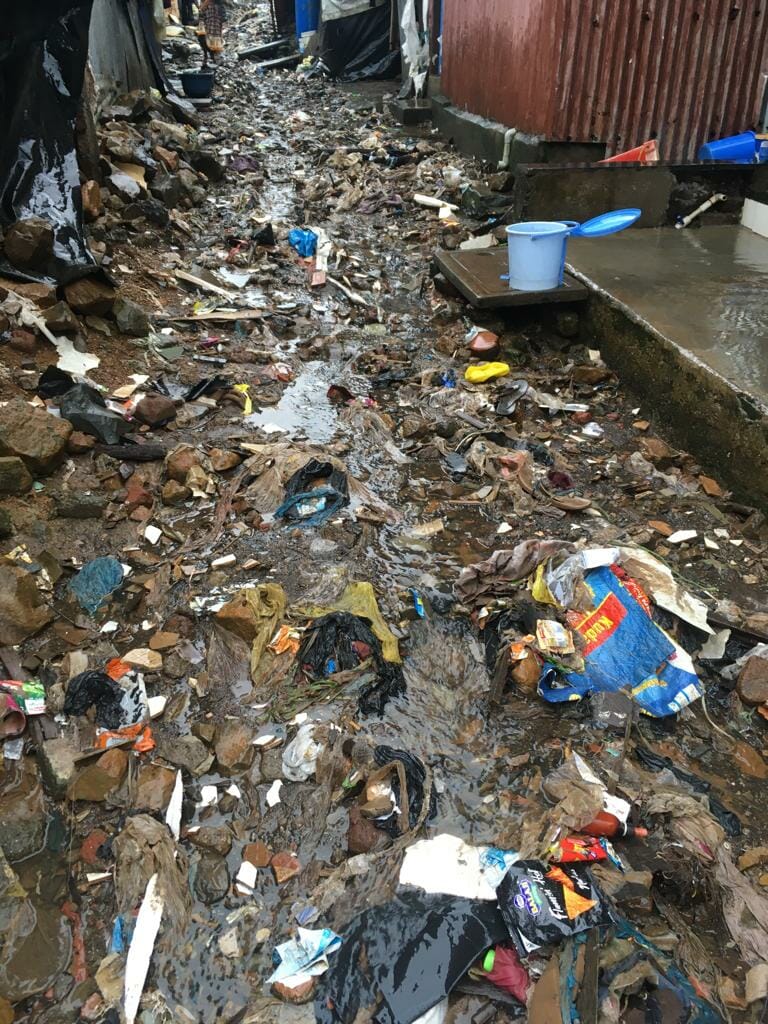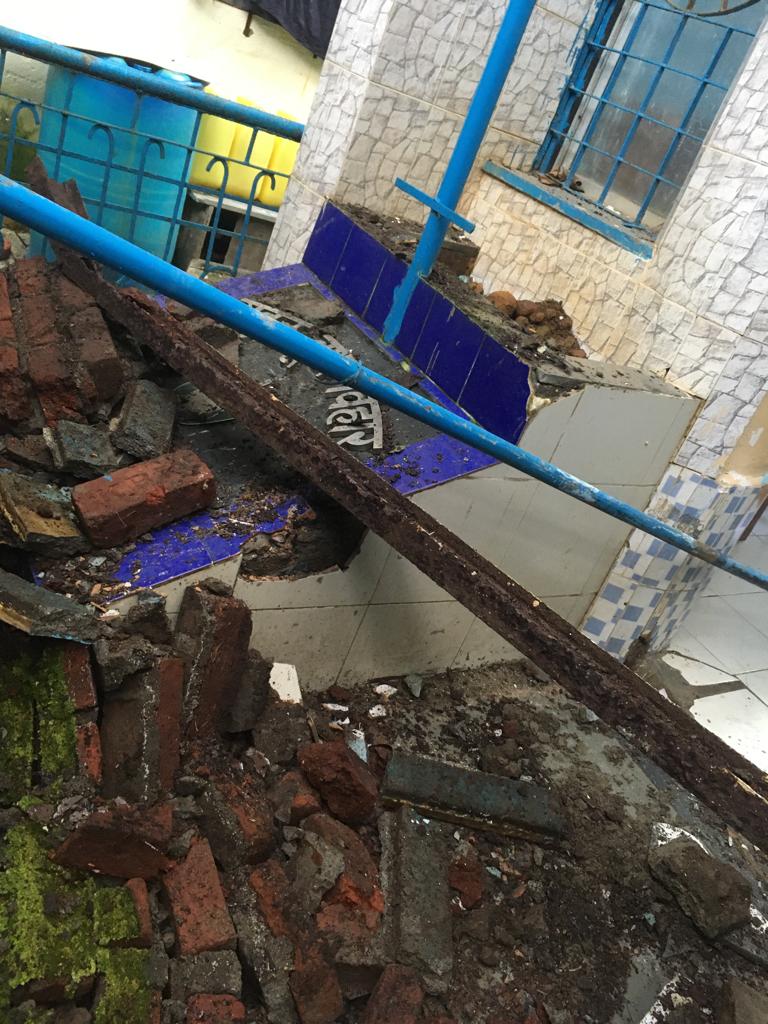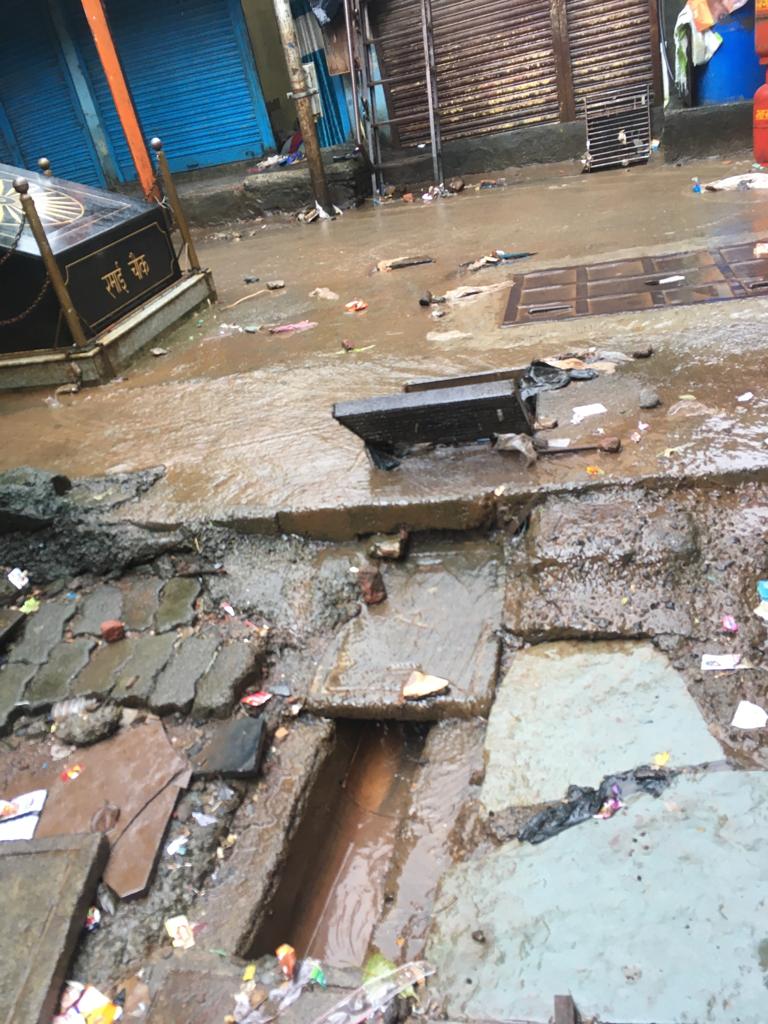I live in Kranti Nagar, Kandivali, at the base of a hill in an informal settlement. Our homes are made of tin sheets and we have received everything from water supply to electricity, but after a long struggle.
Heavy rainfall coupled with a poor sewage system has made the monsoons unbearable. The water cannot flow into the gutters as they are choked to the brim with waste, causing them to overflow and the water to collect entering our homes after a round of heavy showers. Our roads are not concretised or tarred and our homes are makeshift shelters or incrementally built housing, both unsuitable to cope with such bouts of rain.
Frequent waterlogging
Pipelines which supply water to us are poorly constructed and break during heavy showers, forcing us to use dirty water for everyday purposes. The store owners go into heavy losses as their goods get damaged. We have to travel far to access immediate necessities if our homes get waterlogged further adding to our problems.

Read more: In photos: The story behind waterlogging in Mumbai’s Kranti Nagar every monsoon
Accumulation of garbage
The municipal waste collection workers do not come to our area if it rains continuously which leads to further accumulation of waste. The workers do not cover the entire slum anyway which forces the residents to dump their waste by the roadside. This waste lies in the area for days, is an eyesore and the stench is unbearable. Heaps of stinking garbage in the area mixing with mud also attract pigs.
These pigs spread the waste around the area and also spread fear among the residents. Residents are scared of attacks by pigs and also of the diseases they may carry.

Fear of falling trees
What scares us even more is that trees in our area might bend or get uprooted and fall on us when strong gusts of wind coupled with heavy rains cause trees to damage our houses. This damage is extremely expensive and we cannot afford to repair it quickly as our parents are already struggling to provide for the family. Two years ago a huge pipal tree fell on five houses damaging them severely.
This is a recurring nightmare for many in the slum as our houses are anyway not strong enough to withstand extreme weather. What adds to our fears is that there is no help or assistance from the government. Even after five houses were damaged, no authority provided the families support. They did not even come to pick up the fallen tree. We have been left to fend for ourselves.

Frequent power cuts in the informal settlement
Heavy rains also lead to power outages which completely halts all activity in our houses. We are unable to study because of the poor sunlight in our tiny homes. Living with mosquitoes in humid weather with many people in a small home is also suffocating. Cooking, sleeping comfortably especially close to damp clothes and bedding, damaged food and pests, dirty water and mud are mentally stressful.
Half the families living here do not have access to electricity, so we are forced to use lamps and torchlights. Domestic workers, the majority of them women, come home late at night and have to walk on dark roads and lanes leading up to their houses as there are no street lights. We are scared of tripping on uneven roads filled with garbage and sharp stones while walking at night. We cannot even run out to the shop for emergencies or talk to our neighbours. There are groups of men drinking on these dark lanes further adding to our anxieties.
Read more: Growing up in an informal settlement in Mumbai
Impact on our health
Our physical health is at risk due to waterlogging which does not clear for days. We frequently fall ill due to the incessant rains and damp surroundings. Most of us are always down with fever and cold.

Access and affordability to good healthcare, poor sanitation and our low income keep us deprived of nutritious food and healthcare. If we go to a private hospital, it is an additional cost eating into our income. The government hospital is almost five kilometres away from our house.
Although the bus stop a few minutes away from our houses gives us decent bus connectivity, the rickshaws and four wheelers cannot enter our area as the lanes are too narrow. In case of an emergency this can be very difficult for us as we have to walk to find an auto. Both buses and autos are not accessible late at night, making it difficult to travel at night.
Our demands
The pipelines in our area need immediate attention. We need a well-functioning sewerage system to avoid waterlogging. The municipal corporation should provide us with sufficient garbage collection bins for each gully with timely waste collection. We want a well-lit and safe neighbourhood with well-functioning electricity for the entire slum. We want potable water to be provided by the municipality as we spend at least five hundred rupees every month on purchasing water.
Read more: This monsoon, a disaster management app will help you stay prepared
The future in our slum looks bleak without any government intervention, we need to save the youth from unemployment and alcoholism. We need active youngsters who are passionate about ensuring the slum gets better amenities, so we are able to study, work and earn to provide for our families and live in better conditions. Our situation is made worse by climate change as we are the first to take the hit each time a disaster like this year’s flood strikes the city. Decreasing forest cover, poor civic infrastructure and our socioeconomic conditions are all important factors which daily affect our lives in this informal settlement. We need to act now otherwise the most vulnerable among us will suffer the brunt of the ecological crisis.